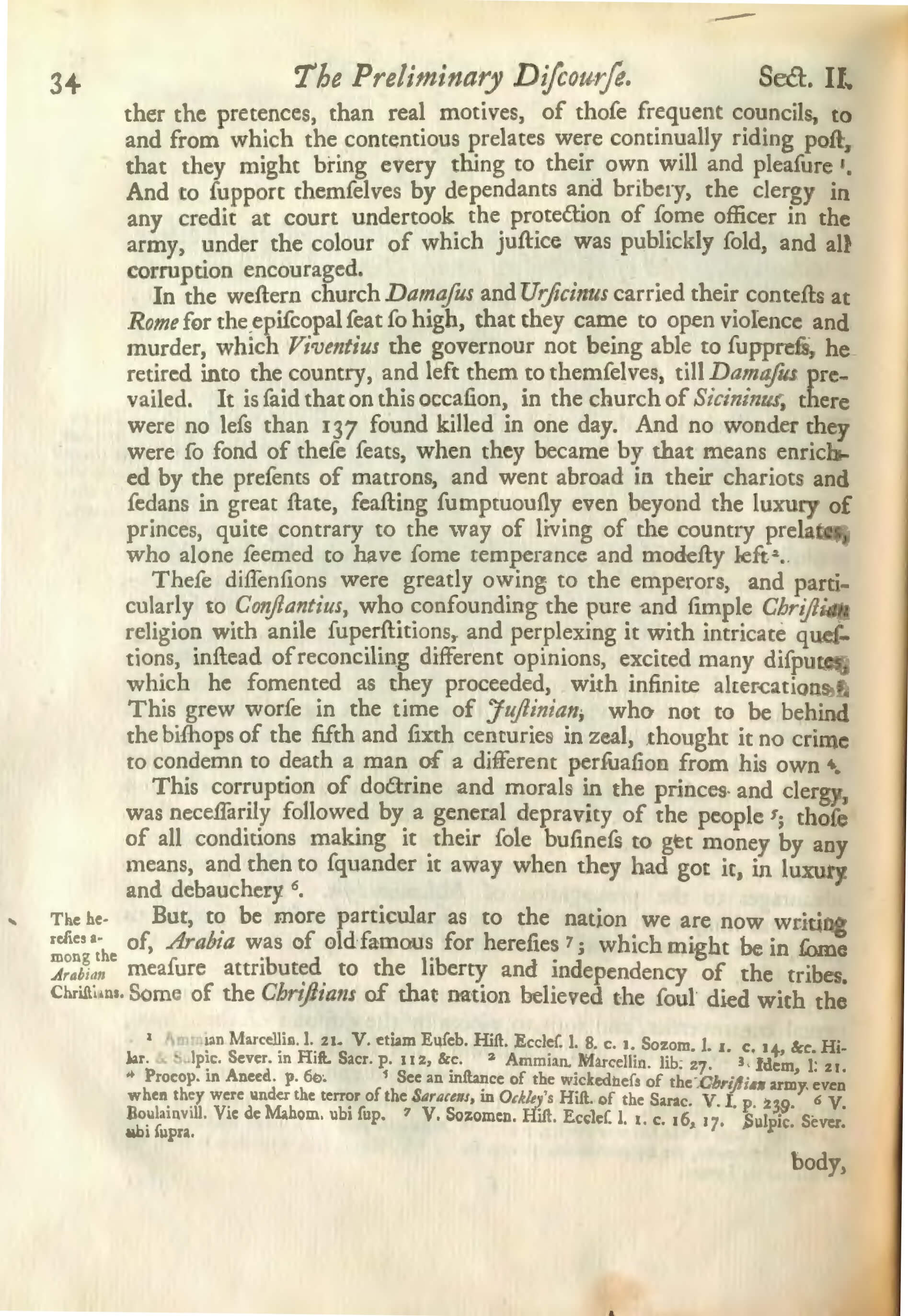George Sale, The Koran, commonly called the Alcoran of Mohammed, translated into English immediately from the original Arabic; with Explanatory Notes, taken from the most approved Commentators. To which is prefixed A Preliminary Discource (1734)
rather the pretences, than real motives, of those frequent councils, to and from which the contentious prelates were continually riding post, that they might bring every thing to their own will and pleasure 1. And to support themselves by dependants and bribery, the clergy in any credit at court undertook the protection of some officer in the army, under the colour of which justice was publickly sold, and all corruption encouraged.
In the western church Damasus and Ursicinus carried their contests at Rome for the episcopal seat so high, that they came to open violence and murder, which Viventius the governour not being able to suppress, he retired into the country, and left them to themselves, till Damasus prevailed. It is said that on this occasion, in the church of Sicininus, there were no less than 137 found killed in one day. And no wonder they were so fond of these seats, when they became by that means enriched by the presents of matrons, and went abroad in their chariots and sedans in great state, feasting sumptuously even beyond the luxury of princes, quite contrary to the way of living of the country prelates, who alone seemed to have some temperance and modesty left 2.
These diffensions were greatly owing to the emperors, and particularly to Constantius, who confounding the pure and simple Christian religion with anile superstitions, and perplexing it with intricate questions, instead of reconciling different opinions, excited many disputes, which he fomented as they proceeded, with infinite altercations 3. This grew worse in the time of Justinian, who not to be behind the bishops of the fifth and sixth centuries in zeal, thought it no crime to condemn to death a man of a different persuasion from his own 4.
This corruption of doctrine and morals in the princes and clergy, was necessarily followed by a general depravity of the peoples 5; those of all conditions making it their sole business to get money by any means, and then to squander it away when they had got it, in luxury and debauchery 6.
The heresies among the Arabian Christians.
But, to be more particular as to the nation we are now writing of, Arabia was of old famous for heresies 7; which might be in some measure attributed to the liberty and independency of the tribes. Some of the Christians of that nation believed the soul died with the
1 Ammian Marcellin. l. 21. V. etiam Euseb. Hist. Ecclef. l. 8. c. 1. Sozom, l. 1. c. 14, &c. Hilar. & Sulpic. Sever. in Hist. Sacr. p. 112, &c.
2 Ammian. Marcellin. lib: 27.
3 Idem, l. 21.
4 Procop. in Anecd. p. 60.
5 See an instance of the wickedness of the Christian army even when they were under the terror of the Saracens, in Ockley’s Hist. of the Sarac. V. I. p. 239.
6 V. Boulainvill . Vie de Mahom. ubi sup.
7 V. Sozomen. Hist. Eccles. I. 1. c. 16, 17. Sulpic. Sever. ubi supra.
